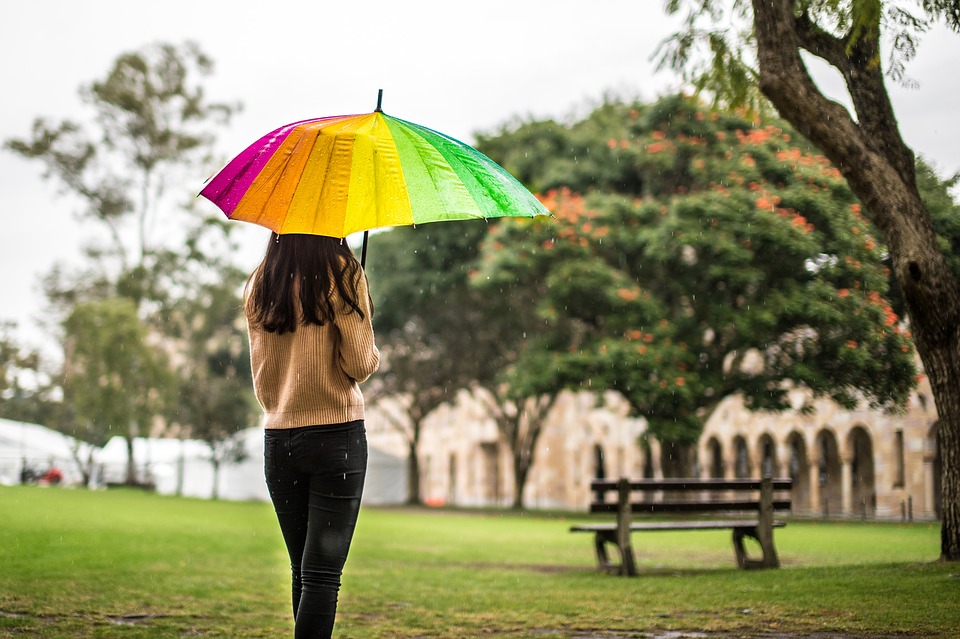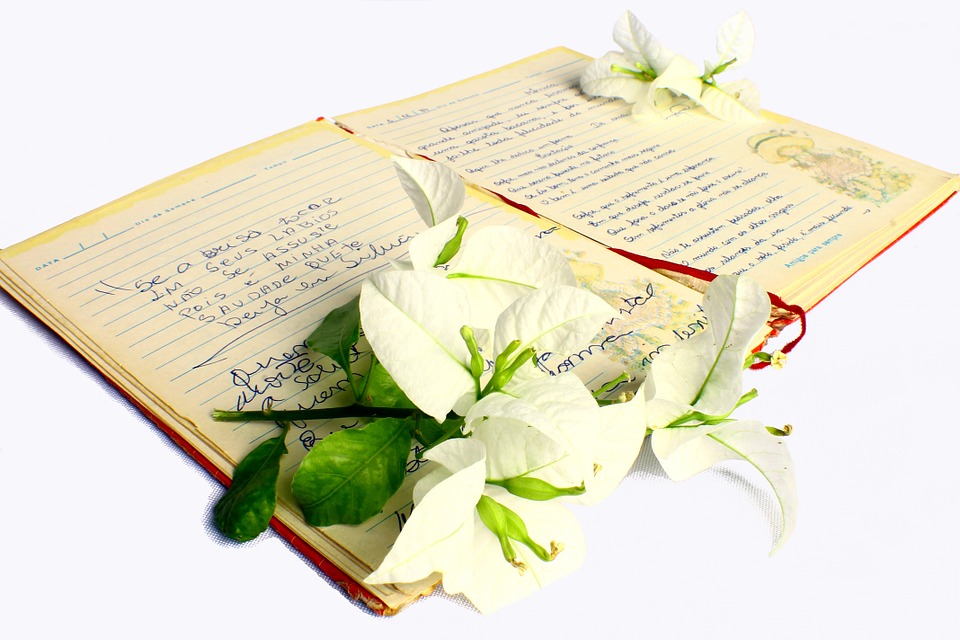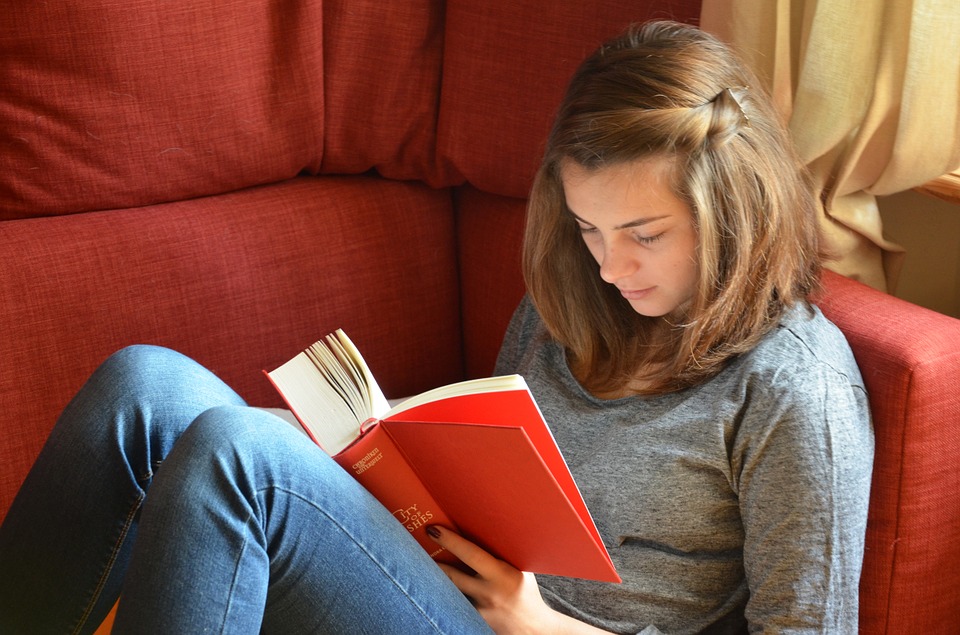 In the world of nature and expression, rain is both a meteorological phenomenon and a muse for writers, artists and filmmakers. Rain showers are common occurrences in the UK, so it’s no surprise that the rain has seeped into both our linguistic expressions and our art.
In the world of nature and expression, rain is both a meteorological phenomenon and a muse for writers, artists and filmmakers. Rain showers are common occurrences in the UK, so it’s no surprise that the rain has seeped into both our linguistic expressions and our art.
Join us on a linguistic journey as we explore the relationship between the English language and the beauty and power of rain.
The Word Rain in English
“Rain” is one syllable in English and is pronounced in exactly the same way as the word “rein” (the leather straps used to control a horse) and the word “reign” (the length of time a monarch rules).
This is one of those instances when learners will need to work out whether the spoken word is “rain”, “rein” or “reign” by the context of the sentence. Thankfully these contexts will usually be very different. However, this sentence might prove troublesome: “The King used the reins to steer his horse in the rain during the first week of his reign”. We hope you enjoyed that one!
Rain Idioms and Expressions
The English language is rich with idioms and expressions that draw inspiration from rain. For example, “it’s raining cats and dogs” and “saving for a rainy day”. Here are some more idioms featuring rain:
(To take a) Rain check: Postponing a plan or an invitation until a later date.
(To feel) Right as rain: Perfectly healthy.
It never rains but it pours: When one bad thing happens, other bad things are sure to follow.
It’s raining cats and dogs: Heavy or intense rain.
Saving for a rainy day: To save money for future needs.
Come rain or shine: Regardless of the outcome / circumstances.
To rain on someone’s parade: To spoil someone’s plans or happiness.
Onomatopoeia: The Pitter-Patter of Rain
Onomatopoeic words like “pitter-patter” and “drip-drop” bring the sound of rain to life. These expressions emulate the soothing or intense nature of rain, creating an auditory experience through language.
“Splish-splash” is another onomatopoeic word that conjures up images of raindrops landing in puddles. “Tinkle” sounds more delicate, perhaps rain hitting leaves, while “gurgle” sounds like rain bubbling through a drain.
Rain Metaphors and Symbolism
Rain often serves as a metaphor for renewal, cleansing and growth. The weather in general often has a symbolic significance in literature and everyday language, where it becomes a tool for conveying emotions. The rain cycle could also be seen as a reflection of the cyclical nature of life.
Rain in Poetry
Rain has long been a muse for poets, inspiring verses that capture the melody of droplets falling against windows or the sound of a gentle downpour. Here are some extracts from poems featuring rain or using rain as a metaphor:
The Rainy Day by Henry Wadsworth Longfellow:
“The day is cold, and dark, and dreary;
It rains, and the wind is never weary;
The vine still clings to the mouldering wall,
But at every gust the dead leaves fall,
And the day is dark and dreary.”
A City’s Death by Fire by Derek Walcott:
“After that hot gospeller has levelled all but the churched sky,
I wrote the tale by tallow of a city’s death by fire;
Under a candle’s eye, that smoked in tears, I
Wanted to tell, in more than wax, of faiths that were snapped like wire.”
Rain by Edward Thomas:
“I hear leaves drinking rain;
I hear rich leaves on top
Giving the poor beneath
Drop after drop;
‘Tis a sweet noise to hear
These green leaves drinking near.”
April Rain Song by Langston Hughes:
“Let the rain kiss you
Let the rain sing you a lullaby
The rain makes still pools on the sidewalk
The rain makes running pools in the gutter
And I love the rain.”
The Love Song of J. Alfred Prufrock by T.S. Eliot:
“I should have been a pair of ragged claws
Scuttling across the floors of silent seas.”
In the Rain by W. H. Davies:
“I thought most sweet
The rain’s strange music over me
The shower broke the day in two,
And since the falling sun was free,
The shaking raindrops let fall
Like nets of pearls through which I see
The day of broken beauties all.”
The Rainy Season Once More by Rabindranath Tagore:
“The sky is gray over the roof,
And the rain of April is on the leaves.
My heart would be glad to know
If you have forgotten me or not.”
Although not about rain specifically, Lines Written in Early Spring by William Wordsworth is another beautiful poem dealing with the changing seasons and the beauty of nature:
“Through primrose tufts, in that green bower,
The periwinkle trailed its wreaths;
And ’tis my faith that every flower
Enjoys the air it breathes.
The birds around me hopped and played,
Their thoughts I cannot measure:—
But the least motion which they made
It seemed a thrill of pleasure.”
Mont Blanc by Percy Bysshe Shelley also explores the power of nature and examines its ability to evoke emotions and provoke contemplation. The concept of the mountain’s voice also links with the Romantic poets’ interest in the sublime:
“Thou hast a voice, great Mountain, to repeal
Large codes of fraud and woe; not understood
By all, but which the wise, and great, and good
Interpret, or make felt, or deeply feel.”

Rain in Film
Rain has a significant presence in visual and literary arts. Filmmakers and authors use rain as a backdrop to enhance mood, drama or the important moments in their stories. Here are some films where rain plays an important part:
In Blade Runner (1982), the rain-soaked dystopian streets of Los Angeles create a noir atmosphere, enhancing the film’s cyberpunk aesthetics and intensifying the drama.
In Singin’ in the Rain (1952), there is an iconic dance sequence in the rain, where the weather serves as a backdrop for a joyful expression of love and exuberance.
In Crouching Tiger, Hidden Dragon (2000), rain features prominently in several martial arts scenes, adding a poetic and visually stunning element to the film’s action sequences.
In The Shawshank Redemption (1994), the rain shower during Andy Dufresne’s escape symbolises rebirth and freedom, creating a powerful moment in the narrative.
In Jurassic Park (1993), a rainstorm serves as the backdrop for the iconic T. Rex attack scene, heightening the suspense and danger faced by the characters.
Rain in Literature
Here are some novels where rain is used to convey emotion and rain is described with evocative language:
In The Great Gatsby by F. Scott Fitzgerald (1925), the pivotal scene where Gatsby reunites with Daisy is set during a heavy downpour, creating a tense and emotional atmosphere.
In The Joy Luck Club by Amy Tan (1989), rain is used metaphorically to symbolise renewal and cleansing in certain pivotal moments, reflecting the themes of the novel.
In The Kite Runner by Khaled Hosseini (2003), the rain and weather patterns in Kabul become metaphors for the turbulence and transformation in the characters’ lives.
In The Metamorphosis by Franz Kafka (1915), rain is mentioned during significant moments, contributing to the surreal and disconcerting atmosphere.
In Jane Eyre by Charlotte Brontë (1847), the stormy weather and rain during critical moments, such as the night Rochester’s secret is revealed, add a dramatic and emotional layer to the story.
Rainy Day Reading
Rainy days often evoke a desire to curl up with a good book. Literature often intertwines the English language with the ambience of rain, creating an immersive reading experience that mirrors the comfort of being indoors during a downpour.

Through poetic verses, idiomatic expressions and metaphor, rain finds its place in the English language, offering us a unique lens through which to appreciate the natural world and human expression.
The next time rain graces your windowpane, listen closely and feel the emotions evoked, as you may discover more than just droplets of water!
Discussion about the language of rain
Do you enjoy the sounds of rain?
What English words do you like to use to describe rain?
Do you have interesting words in your own language that describe rain?
Can you think of more idioms or expressions featuring rain?
What is your favourite movie, novel or poem that uses rain for atmosphere?
Share your thoughts in the comments!
